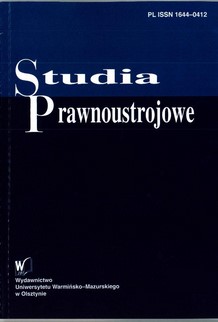Glosa do wyroku Naczelnego Sądu Administracyjnego z 6 czerwca 2018 r., II FSK 1525/16, dotycząca polecenia darczyńcy a podatku od spadków i darowizn
Gloss to the decision of the Supreme Administrative Court of June 6th 2018, II FSK 1525/16 concerning donor’s instruction and the gift and inheritance tax
Author(s): Łukasz KarczyńskiSubject(s): Civil Law, Law on Economics, Fiscal Politics / Budgeting, Court case
Published by: Wydawnictwo Uniwersytetu Warmińsko-Mazurskiego w Olsztynie
Keywords: revenue law; tax law; gift and inheritance tax; instruction; donor; gift; donation; tax base; burden; obligation; debt;
Summary/Abstract: The gloss concerns the controversial decision of the Supreme Administrative Court, according to which the donor’s instruction, performed for the benefit of the donor himself, constitutes a burden that reduces the tax base of the gift and inheritance tax. The paper aims to critically analyze the argumentation presented by the court and to suggest a different way of solving legal interpretation problems in terms of the tax consequences of the donor’s instruction. In the author’s opinion, this judgment should be assessed as incorrect, primarily due to the omission of the essence of the instruction, which was not – as the Supreme Administrative Court seems to assume – the performance of an abstract consideration to a third party, but the conclusion of a sale agreement under which the recipient received ownership of real property without reducing his assets. Therefore, if as a result of the instruction there was no reduction in the assets of the recipient, the tax base should not be reduced either. This conclusion is also supported by a textual interpretation, as the Gift and Inheritance Tax Act refers to the “value of the burden” resulting from the instruction, and not to the bearing of the burden itself – which the court also seems not to notice. The value of the burden of the obligation to purchase the property is nil, as the result is that the recipient disposes of the cash, but at the same time acquires ownership of the property (assuming that the property is purchased at market price). Such an interpretation is also consistent with the general purpose of the Act (imposing a tax on purchases free of charge) and with the civil law’s understanding of the instruction (an order to act in favour of the recipient himself does not reduce the value of his property in the light of private law).
Journal: Studia Prawnoustrojowe
- Issue Year: 2021
- Issue No: 53
- Page Range: 507-514
- Page Count: 8
- Language: Polish

